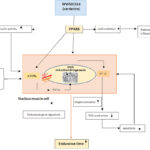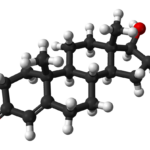Abstract
PURPOSE:
Reactive oxygen species (ROS) are implicated in cardiovascular disease and in the pathogenesis of type 2 diabetes and its complications, and it has been shown to increase insulin resistance. The purpose of this study was to examine the effect of aerobic exercise training and weight loss on ROS in overweight and obese patients as applied in a community clinical setting.
METHODS:
Fifty healthy female clinic patients (M ± SEM: age, 41.0 ± 1.8 years; body mass index, 28.2 ± 0.8 kg/m2), free of cardiovascular events and not on drug therapy were evaluated before and after 3 months of dietary restriction (∼150 to 300 kcal/day deficit) and aerobic training (3 days/week for 1 hour at ∼75% VO2max). Measures included ROS, maximal power (kg/min) on cycle ergometry, postexercise heart rate recovery responses at 1 and 2 minutes, and selected anthropometric and hematologic variables.
RESULTS:
Significant (P < .01) improvements were observed after aerobic training and weight loss in body weight in kilograms (-7.1%); maximal power in kg/min (+32.6%), ROS in U.CARR (Carratelli units) (-25.7%); and heart rate recovery 1 minute in beats per minute (-37.6%) following the program. Significant improvements were also noted in other anthropometric, cardiovascular, and hematologic measures.
CONCLUSIONS:
A 12-week program of nutritional and exercise intervention in overweight/obese sedentary women improves levels of oxidative stress when accompanied by weight loss and improved fitness. More than restricted caloric intake, physical activity at a relatively high intensity was effective in improving cardiovascular risk markers. The reduction in ROS may be an additional mechanism by which physical activity may contribute to preventing metabolic syndrome and subsequent atherosclerotic disease.






